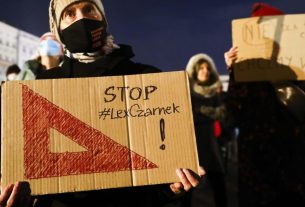In the world of human rights advocacy, Harvard appointing Roth would have been entirely uncontroversial. Though he certainly has made enemies over the years — often governments that his former organization shamed for human rights violations — the fact that he’s qualified to serve as a senior fellow at a center dedicated to human rights is almost self-evident. The organization is one of the world’s foremost human rights watchdogs, with 550 employees and a budget of $97 million. And in the world of academia, Roth’s enemies, whether real or perceived, should not have mattered.
As it stands, the dean’s decision sends a chilling message that there are significant limits at Harvard on which ideas count as acceptable. In this case, it seems that if someone criticizes the Israeli government too harshly, it could lead to consequences for their career. As Roth put it in an op-ed for The Guardian, “Being denied this fellowship will not significantly impede my future. But I worry about younger academics who are less known. If I can be canceled because of my criticism of Israel, will they risk taking the issue on?”
That’s why Elmendorf owes Roth and, more important, Harvard’s students and faculty a proper explanation — lest he risk contributing to an environment of self-censorship. But so far, the dean has refused to clarify why he denied the fellowship to Roth.
“Dean Douglas Elmendorf decided not to make this fellowship appointment, as he sometimes decides not to make other proposed academic appointments, based on an evaluation of the candidate’s potential contributions to the Kennedy School,” James Smith, a spokesperson for the school, said in an e-mail. “We have internal procedures in place to consider nominations for fellowships and other appointments, and we do not discuss our deliberations about individuals who may be under consideration.”
But now that the story has spilled into public view, Harvard ought to err on the side of transparency. Silence only opens the door to more questions and builds a culture of fear. In his op-ed, Roth said, “As best we can tell, donor reaction was [Elmendorf’s] concern.” Is that true, or does the dean himself believe that there’s no place to harshly criticize Israel at his school?
It shouldn’t be too much to ask why the same institution that believed that Sean Spicer, Donald Trump’s first White House press secretary, who repeatedly and brazenly lied to the public, met its standards for a fellowship also believed that a stalwart defender of human rights did not. If Elmendorf did indeed deny Roth a job because of Roth’s critiques of Israel, as he allegedly told Kathryn Sikkink, a professor affiliated with the Kennedy School for nearly 10 years, then he should be able to explain what it is about Roth’s work that goes too far for Harvard’s comfort.
Roth has certainly received his fair share of backlash for comments he’s made about Israel and for Human Rights Watch’s various reports documenting Israel’s human rights violations in its occupation of the West Bank and Gaza. Human Rights Watch’s 2021 report, which accused Israel of committing the crimes against humanity of apartheid and persecution, was heavily criticized by pro-Israel groups (though other major human rights organizations, including an Israeli one, have made the same accusation).
Roth’s critics argue that Israel draws outsize attention from Roth and his former organization compared to other human rights violators in the region. That critique doesn’t hold much water, though, given that Human Rights Watch does, in fact, issue damning reports on government abuses across the Middle East and North Africa, such as Egypt’s war crimes in the Sinai or the Palestinian Authority’s systematic arrests and use of torture against dissidents. But that critique, along with Roth’s various tweets or statements, have made him a frequent target of Israel’s supporters. And though The Nation reported that Roth’s tweets were “of particular concern” for Harvard, it’s unknown which tweets were deemed out of bounds since the dean has not yet offered a public explanation for his decision.
But the fact of the matter remains that even if Roth focused too much on Israel, that shouldn’t be grounds to deny him an academic job. There have been other incidents at universities, both in the United States and abroad, where academics appeared to face consequences, such as losing out on job opportunities, for speaking out on Israel and its treatment of Palestinians. Harvard, with its mission of providing intellectual honesty and rigor, ought to be a place where scholarship and debate on a subject as sensitive and fraught as the occupation is encouraged. Now the university is just the latest example of the academic obstacles to vigorous and open dialogue on Israel and Palestine.
The integrity of an academic institution is only as good as its willingness to foster an environment of academic freedom — whatever the cost and however uncomfortable it makes some people feel. Against the backdrop of escalating attacks on universities’ commitments to free thought, be it because of undue influence of deep-pocketed donors or political appointees, Harvard, with its big reputation and even bigger endowment, ought to be a leading defender of academic freedom. But by rejecting Roth, Harvard showed it had no appetite to stand up for its purported principles. And that’s a loss for American higher education.
Editorials represent the views of the Boston Globe Editorial Board. Follow us on Twitter at @GlobeOpinion.



